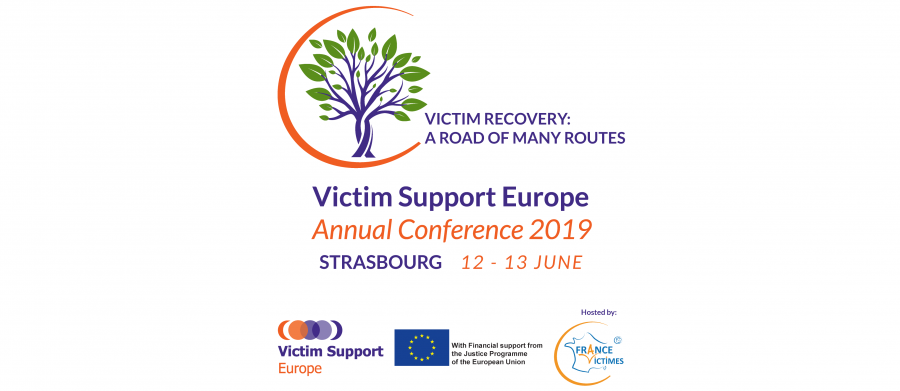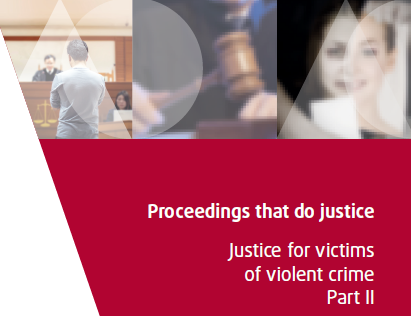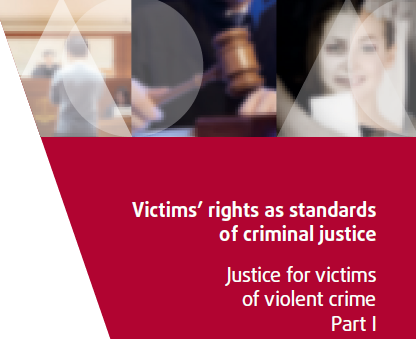For a quick search in the Knowledge database below, please use the search box. Also, note that using one or more of the dropdown filters will optimise your search.
Watch this video to find out more about our Knowledge Database and the publications we have collected here for you: video
Knowledge Database
-
Internet Organised Crime Threat Assessment
EUROPOL | Published in 2018
For the fifth year in a row, Europol has produced the Internet Organised Crime Threat Assessment (IOCTA). The aim of this Assessment is to provide a comprehensive overview of the current, as well as anticipated future threats and trends of crimes conducted and/or facilitated online. While current events demonstrate how cybercrime continues to evolve, this year’s IOCTA shows us how law enforcement has to battle both innovative as well as persistent forms of cybercrime. Many areas of the report therefore build upon previous editions, which emphasises the longevity of the many facets of cybercrime. It is also a testimony to an established cybercrime business model, where there is no need to change a successful modus operandi. The report also highlights the many challenges associated with the fight against cybercrime, both from a law enforcement and, where applicable, a private sector perspective.
Keywords: cybercrime, fraud, information security culture, prevention, stalking, victimisation -
The Victims’ Rights Directive 2012/29/EU: European Implementation Assessment
European Parliamentary Research Service | Published in 2017
This study assesses the implementation of Directive 2012/29/EU establishing minimum standards on the rights, support and protection of victims of crime in EU Member States. It assesses its coherence, relevance, effectiveness, efficiency and added value. In doing so, it covers various aspects of the directive's application: legal transposition measures at Member State level, practical implementation on the ground, benefits to victims, and also the challenges encountered. Finally, the study offers a number of conclusions and recommendations for further promoting implementation of the directive in the future.
Keywords: guidance, justice, victim services -
Police Referral to Victim Support
Frans Willem Winkel, Tamar Wohlfarth, Eric Blaauw | Published in 2004
One of the basic rights of crime victims granted under victim-orientated legislation introduced during the last 20 years in more than 100 countries worldwide is the right to be referred to victim support by the police. The under-utilization of psychological services by crime victims who are objectively in need of external support is substantial. Current legal procedures tend to perpetuate this unwanted condition. Programs aimed at the early detection and prevention of persistent postvictimization distress are more in line with the ideals of therapeutic jurisprudence. The RISK (10) screening instrument, which was specifically developed to be administered by police officers, may provide a basis for early detection. RISK (10) consists of a selection of 10 Risk factors with prior empirical evidence and theoretical significance. The focus of the present study was to examine the predictive and diagnostic power of RISK (10) components to detect persistent future psychological distress, among other things, in terms of Adjustment Disorder. Analyses were based on a sample of 93 crime victims who participated in the police and follow-up parts of the study. Findings provided initial validation for the predictive accuracy of most RISK (10) components, and confirm the diagnostic value (in terms of specificity, sensitivity, positive and negative predictive power) of risk factors, such as engaging in character attributions, upward comparison processes, fatalistic appraisals of the episode, and the initial reporting of expected deficiencies in social support. The clinical utility of RISK (10) for early detection in police stations is confirmed.
Keywords: referral, support, victim services, victimisation -
National Referral Mechanisms – Joining Efforts to Protect the Rights of Trafficked Persons: A Practical Handbook
OSCE ODIHR | Published in 2004
Keywords: human trafficking, referral, support, trauma, victim services -
Manual on Model Practices for the identification, needs assessment and referral of victims
The project “Developing Directive–compatible practices for the identification, Assessment and Referral of Victims” builds the knowledge basis for the effective implementation of the Victims’ Directive by proposing model practices for institutions in three critical aspects of victim’s rights: a) Victim identification b) Individual assessment of victims’ needs (including special protection needs) and c) Networking and referral practices between institutions involved in victim support and protection. In specific, the project contributes to the effective implementation of the Directive by a) enabling a cross-fertilization and exchange of knowledge and practices on articles 22 and 26 of the Directive of Victims 2012/29/EU b) developing practical tools that can be used by practitioners and policy makers on three critical issues of the Victims Directive c) providing capacity building and promoting networking among professionals nationally and transnationally d) enabling the exchange and dissemination of good practice; e) and ensuring that the results are transferable and open to free use by any interested party after the end of the project.
Keywords: capacity building, referral, support, victim services -
The National Referral Mechanism Pilots: A Review of the Training
This is the first report in a series of research reports that will follow the progress of the NRM pilot and implementation of the subsequent recommendations. This initial report focuses on the training modules received by the Multi-Disciplinary Panel (MDPs) members and Slavery Safeguarding Leads (SSLs). The main aim was to ascertain if the training delivered was effective and sufficient to perform the roles expected. The report also seeks to address other issues, as identified by the NRM Review, specifically in light of the pilot, and if it has improved processes in relation to identification of victims, awareness of frontline professionals of modern slavery and the NRM, streamlined and tightened the initial referral, and made for more expedient decisions across the mechanism.
Keywords: human trafficking, prevention, referral, support, victim services -
Migration: Key Fundamental Rights Concerns
FRA | Published in 2018
Keywords: humanitarian, migration, poverty -
Women as victims of partner violence: Justice for victims of violent crime, Part IV
FRA | Published in 2019
Keywords: domestic violence, justice, support, victim services, violence -
Proceedings that do justice: Justice for victims of violent crime, Part II
FRA | Published in 2019
Keywords: justice, support, trauma, violence -
Victims’ rights as standards of criminal justice: Justice for victims of violent crime, Part I
FRA | Published in 2019
Keywords: support, trauma, victim services, violence










